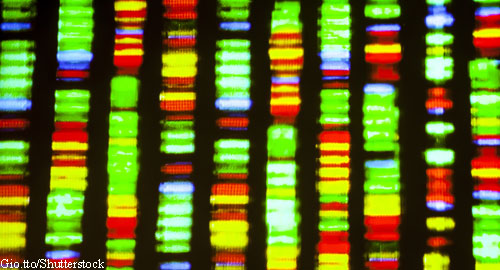 Combining experimental and bioinformatic strategies is allowing investigators to dig deep into human genetic data to uncover the mechanism of rheumatic diseases.
Combining experimental and bioinformatic strategies is allowing investigators to dig deep into human genetic data to uncover the mechanism of rheumatic diseases.
Research published in Nature Genetics from the laboratories of Peter A. Nigrovic, MD, and Soumya Raychaudhuri, MD, PhD, provides new methods developed in the investigators’ labs at Harvard Medical School to successfully identify genetic variants responsible for common autoimmune diseases, including rheumatoid arthritis (RA) and juvenile idiopathic arthritis (JIA). Both studies employ distinct approaches to the same challenge: identifying non-coding causal variants.
A Pathway to Rheumatic Disease Origin
Both studies address how to make sense of genome-wide association studies (GWAS). GWAS in RA and JIA have implicated more than 100 chromosomal loci in the genesis of these diseases, but in most cases how these loci predispose to illness is unclear.
“Most GWAS ‘hits’ contain multiple genes, and in the large majority of cases none of these candidates contains mutations that alter protein sequence. In other words, most GWAS signal arises through regulatory rather than coding variants,” Dr. Nigrovic explains. “Unfortunately, each locus contains many genetic polymorphisms that could potentially have regulatory function, leaving related disease mechanisms obscure.”
To find these non-coding variants, Dr. Nigrovic’s lab developed an experimental approach termed SNP-seq (single nucleotide polymorphism-next generation sequencing). Non-coding variants are engineered into a library of hundreds or potentially thousands of DNA constructs, which are then screened for the ability to bind transcription factors and other regulatory proteins via type II-S restriction enzyme protection.
Using this technique, Dr. Nigrovic and his colleagues tested variants within the CD40 locus, previously associated with RA risk by Dr. Raychaudhuri, to identify three linked non-coding variants and their associated regulatory proteins.
“We then went on to test more than 1,200 variants from 27 loci associated with JIA, identifying promising candidate variants, including new regulators of the immune gene STAT4,” Dr. Nigrovic says. Their work was published in the August 2018 issue of Nature Genetics.1
Dr. Raychaudhuri’s lab employed a different approach, he explains. Using DNA fine mapping combined with Bayesian bioinformatics, they pooled GWAS data from RA and type 1 diabetes to identify genetic polymorphisms that were especially likely to represent causal variants. These variants were confirmed experimentally by the Nigrovic lab, which yielded new insights into how immune-mediated disease arises through genetic polymorphisms, including via specific non-coding variants in MEG3, CD28-CTLA4 and IL2RA. This second approach was released online in Nature Genetics in October.2

